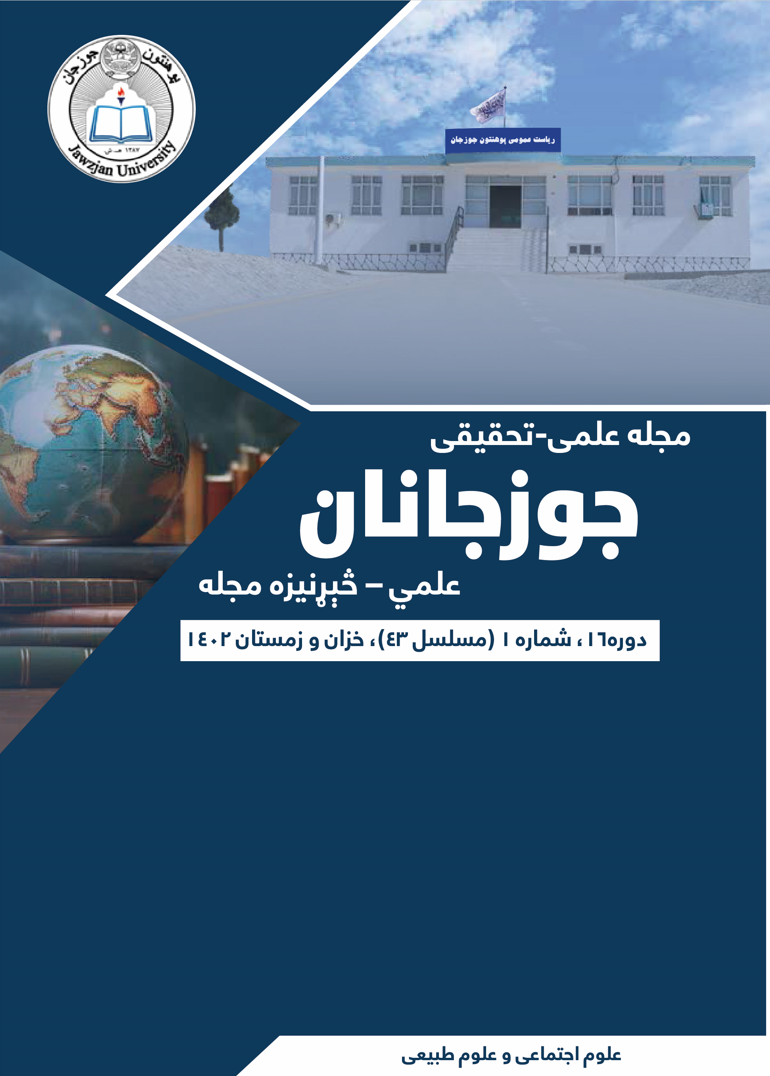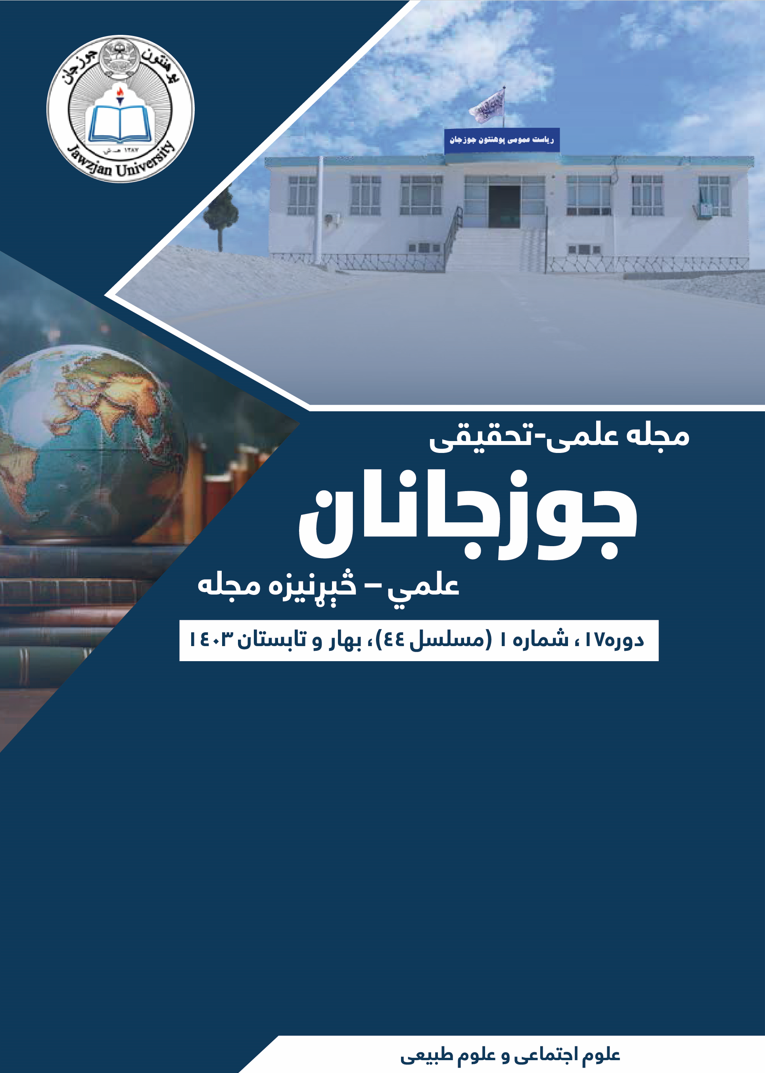The effect of strategic human resource management on job performance with the mediating role of Islamic work ethics
DOI:
https://doi.org/10.69892/jawzjanan.2024.27Keywords:
Islamic Work Ethics, Strategic Management Of Human Resources, Job Performance, Administrative Staff Of Jawzjan UniversityAbstract
Human resource management is to attract and use the best services and provide services, benefits, training and development for success in an organization. However, strategic human management takes these issues one step further with the goals of other departments and the goals of the organization. Human departments that practice strategic management also ensure that all of their resources are aligned with the mission, vision, values, and organizations of which they are a part. The present research has been conducted by examining the effect of strategic human resources management on job performance with the mediating role of Islamic work ethics of Jawzjan University employees. The method of this research is descriptive-survey and practical in terms of the nature of the goal. The study population of this research was formed by all the administrative staff of Jawzjan University in the number of 78 people in 1402, and 65 people were selected using the Cochran sample size formula using the relative random sampling method. To measure the variables of the research, questionnaires of strategic human resources management (Edavar et al., 2006), job performance (Hersey and Goldsmith, 1890) and Islamic work ethics (Yosef, 2001) have been used. The data were analyzed using the structural equation model. The results showed that there was a direct and meaningful relationship between the strategic management of human resources and the job performance of Jawzjan University employees and Islamic work ethics as an effective mediating variable. According to the findings of the research, it can be concluded that the Islamic work ethic in the employees of Jawzjan University plays an important role in improving the effect of strategic management of human resources on their job performance.
References
ابراهیمی، و همکاران. (1398). بازتاب خدمتگزاری در سازمانی مردم نهاد: تقش تعدیلگر اخلاقِ کار اسلامی. فصلنامه علم و مدیریت ایران، 14(53)، 39-65.
حیدری، محسن. (1400). تأثیر مدیریت استراتیژیک منابع انسانی برعملکرد شغلی با نقش میانجی اخلاقِ کار اسلامی (مورد مطالعه کارکنان آموزش و پرورش خرم آباد). پایاننامهی کارشناسی ارشد مدیریتِ دولتی، پوهنځی ادبیات و علوم انسانی، پوهنتون ایلام.
داوری، علی، رضازاده، آرش. (139۳). مدلسازی معادلات ساختاری با نرم افزار PLS، تهران: انشارات جهاد دانشگاهی.
رئیسی، نوید. (1400). بررسی تأثیر مدیریت منابع انسانی برعملکرد شغلی کارکنان با میانجیگري رضایت شغلی. پایاننامهی کارشناسی رشتهی مدیریت دولتی، پوهنتون پیام نور- واحد یزد.
عباسی، بدری. (1399). شناسایی و رتبهبندی معیارهای مدیریت استراتژیک منابع انسانی در دانشگاه. فصلنامه چشمانداز مدیریت دولتی 11(2)، 127- 147.
عطار، غزاله طاهری و همکاران. (1398). تحلیل اثر اخلاق حرفهای بر عملکرد شغلی و اعتماد سازمانی با میانجیگری جَو اخلاقی. تحقیقنامه مدیریت تحول، 11(21)، 27-56.
هاشمی، سید اسماعیل و همکاران. (1395). تحلیل مدل پیامدهای جَو اخلاقی سازمانی. فصلنامهی اخلاق در فناوری، 11(3)، 49-58.
Alaraqi, A. K. (2017). Relationship between SHRM and organizational performance among Iraqi oil companies. Journal of Global Economics, 5(1), 2375-4389.
Al-Lawama, H. I., Omar, K., Saadon, M. S. I., & Aburumman, O. J. (2021). The relationship between strategic human resource management practices and organizational performance by mediating role of employee behavior in Jordanian telecommunication companies. Turkish Online Journal of Qualitative Inquiry, 12(3).
Arulrajah, A. A. (2015). Contribution of human resource management in creating and sustaining ethical climate in the organisations. Sri Lankan Journal of Human Resource Management, 5(1).
Baqi Nasr Abadi, A., & Behzad Nia, M. (2020). The Relationship Between Strategic Human Resource Management and Job Performance: The Mediating Role of Moral Atmosphere. Organizational Culture Management, 18(4), 751-774.
Busi, M., & Bititci, U. S. (2006). Collaborative performance management: present gaps and future research. International journal of productivity and performance management, 55(1), 7-25.
Hijal-Moghrabi, I., Sabharwal, M., & Berman, E. M. (2017). The importance of ethical environment to organizational performance in employment at will states. Administration & Society, 49(9), 1346-1374.
Millar, P., & Stevens, J. (2012). Management training and national sport organization managers: Examining the impact of training on individual and organizational performances. Sport Management Review, 15(3), 288-303.
Navajas-Romero, V., Ceular-Villamandos, N., Pérez-Priego, M. A., & Caridad-López del Río, L. (2022). Sustainable human resource management the mediating role between work engagement and teamwork performance. Plos one, 17(8), e0271134.
Rudzka. S. (2018). Human Resources Management in Higher Education Institutions in Poland. Management, 22(1) ,33-45.
Sabiu, M. S., Ringim, K. J., Mei, T. S., & Joarder, M. H. R. (2017). Relationship between human resource management practices, ethical climates and organizational performance, the missing link: An empirical analysis. PSU Research Review, 3(1), 50-69.
Shahzad, K., Hong, Y., Muller, A., DeSisto, M., & Rizvi, F. (2023). An Investigation of the Relationship Between Ethics-Oriented HRM Systems, Moral Attentiveness, and Deviant Workplace Behavior. Journal of Business Ethics.
Yauch, Ch. (2010). Measuring agility as a performance autcome, Journal of Manufacturing Technology Management, 22(3). 384-404.
Yousef, D. A. (2001). Islamic work ethics: A moderator between organisational commitment and job satisfaction in across-cultural context. Personnel Review, 30, 152–169.







